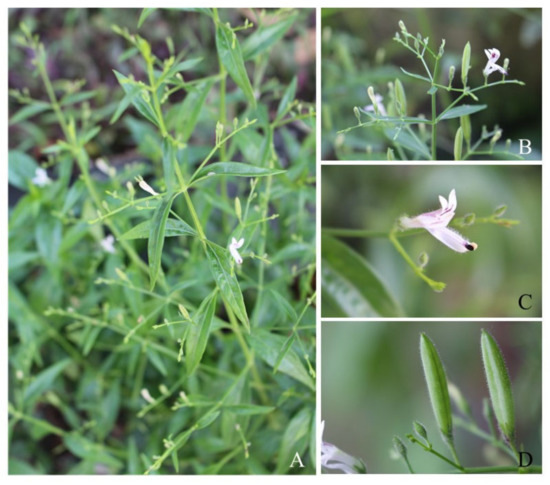Pharmacological Role of Andrographolide to Ameliorate Inflammatory Diseases and Cancers
Dr Md Anawar Hossain
Andrographolide has shown demonstrated therapeutic effect in inflammatory diseases, including liver diseases, joint diseases, respiratory system diseases, nervous system diseases, heart diseases, inflammatory bowel diseases, and inflammatory skin diseases. It also showed promising results in colorectal, liver, gastric, breast, prostate, lung, and oral cancers.
Source of Andrographolide
It is a well-known natural lactone and a labdane diterpenoid isolated from Andrographis paniculata plant which is used in traditional Chinese and Indian medicine for its multiple pharmacological actions and recovery of diseases.
Isolation of Andrographolide from Andrographis Paniculata Nees (Kalmegh)
Rajani et al. (2000) reported a simple and rapid method for isolation of andrographolide from the leaves of Andrographis paniculate. This process extracts leaf powder by cold maceration in a 1:1 mixture of dichloromethane and methanol and then isolate andrographolide directly from the resulting extract by recrystallisation. The compound was identified and confirmed through IR, UV, mass and melting point, and co-chromatography with a reference standard on TLC. The purity of the compound was confirmed by TLC, UV absorption spectrum, HPLC and differential scanning calorimetry. The melting point of andrographolide was confirmed as 235.3°C (Rajani et al., 2000).
Reviews on anti-inflammatory and anti-cancer activities
Qu et al. (2022) reviewed the pharmacokinetics and pharmacological activity of andrographolide which provided evidence that andrographolide has further clinical application in cancers and inflammatory diseases. Based on increasing number of evidence it has proven therapeutic effect in inflammatory diseases, including liver diseases, joint diseases, respiratory system diseases, nervous system diseases, heart diseases, inflammatory bowel diseases, and inflammatory skin diseases. They summarised the preclinical use of andrographolide to different organs in response to malignancies, such as colorectal, liver, gastric, breast, prostate, lung, and oral cancers.
Various therapeutic effects of andrographolide
- Andrographolide is reported to have anti-bacterial, anti-viral, anti-inflammatory and anti-cancer functions (Vetvicka and Vannucci, 2021).
- It can also stimulate immune system and defense reactions.
- It is also evaluated in inflammation-mediated diseases, such as ulcerative colitis.
- Among the most pronounced activities are anti-bacterial and anti-tumor effects.
- Andrographolide demonstrated promising anti-cancer effects on different cancer diseases, such as colon cancer, breast cancer, head and neck carcinomas, prostate cancer and glioblastoma.
- Andrographolide protects against endothelial dysfunction and inflammatory response in rats with coronary heart disease by regulating PPAR and NF-κB signaling pathways (Shu et al., 2020). Andrographolide may represent a medicinal approach for assessing and treating coronary heart disease.
- Luo et al. (2021) reported that Andrographolide exhibited significant protective effects against lung cancer. They provided new pharmacological insights based on high-throughput metabolomics analysis combined with network pharmacology.
Current problems in use of Andrographolide and further research
- The natural extract from Andrographis paniculata plant has low solubility and low level of active substance. Therefore, it is needed to prepare chemical analogs.
- Although its therapeutic effects and molecular mechanisms of action are documented and partially characterized, further research is needed for more clear knowledge.
- The doses, types of treatment and possible negative side effects are not yet established.
- Currently, various isolations and compound formulas have been used for treatment of various diseases, making final conclusions problematic.
Adverse effects of Andrographis paniculate
- About 100 medicines containing Andrographis are listed in the Australian Register of Therapeutic Goods (ARTG). Therefore, its side effects or adverse effects should be known by consumers and health professionals (TGA, 2020).
- It has potential to change sense of taste (TGA, 2020).
- The products containing the herb Andrographis paniculata may cause changes in the sense of taste, taste disturbance, and complete loss of taste.
- Consumers may take a couple of weeks to regain their normal taste after stopping the intake of this product.
- Healthcare professionals should inform the consumers about developing taste disturbances when using Andrographis products.

References
Luo W, Jia L, Zhang J-W, Wang D-J, Ren Q and Zhang W (2021) Andrographolide Against Lung Cancer-New Pharmacological Insights Based on High-Throughput Metabolomics Analysis Combined with Network Pharmacology. Front. Pharmacol. 12:596652. doi: 10.3389/fphar.2021.596652
Qu J., Liu Q., You G., Ye L., Jin Y., Kong L., Guo W., Xu Q., Sun Y. (2022). Advances in ameliorating inflammatory diseases and cancers by andrographolide: Pharmacokinetics, pharmacodynamics, and perspective. Medicinal Research Reviews, Vol. 42 (3), Pages 1147-1178.
Rajani M., Shrivastava N., Ravishankara M.N. (2000) A Rapid Method for Isolation of Andrographolide from Andrographis Paniculata Nees (Kalmegh), Pharmaceutical Biology, 38:3, 204-209.
Shu J, Huang R, Tian Y, Liu Y, Zhu R, Shi G. Andrographolide protects against endothelial dysfunction and inflammatory response in rats with coronary heart disease by regulating PPAR and NF-κB signaling pathways. Ann Palliat Med 2020;9(4):1965-1975. Open access
Therapeutic Goods Administration (TGA), 2020. Andrographis paniculate, Safety advisory – potential to change sense of taste. Published on20 May 2020. https://www.tga.gov.au/news/safety-alerts/andrographis-paniculata.
Vetvicka V, Vannucci L. Biological properties of andrographolide, an active ingredient of Andrographis Paniculata: a narrative review. Ann Transl Med 2021;9(14):1186. open access.
